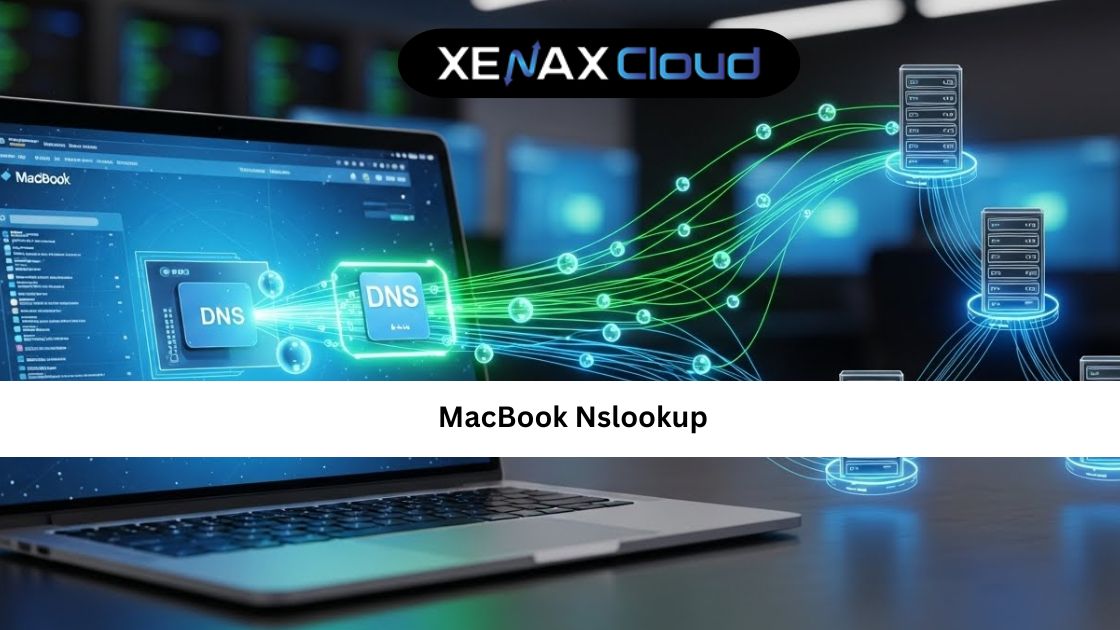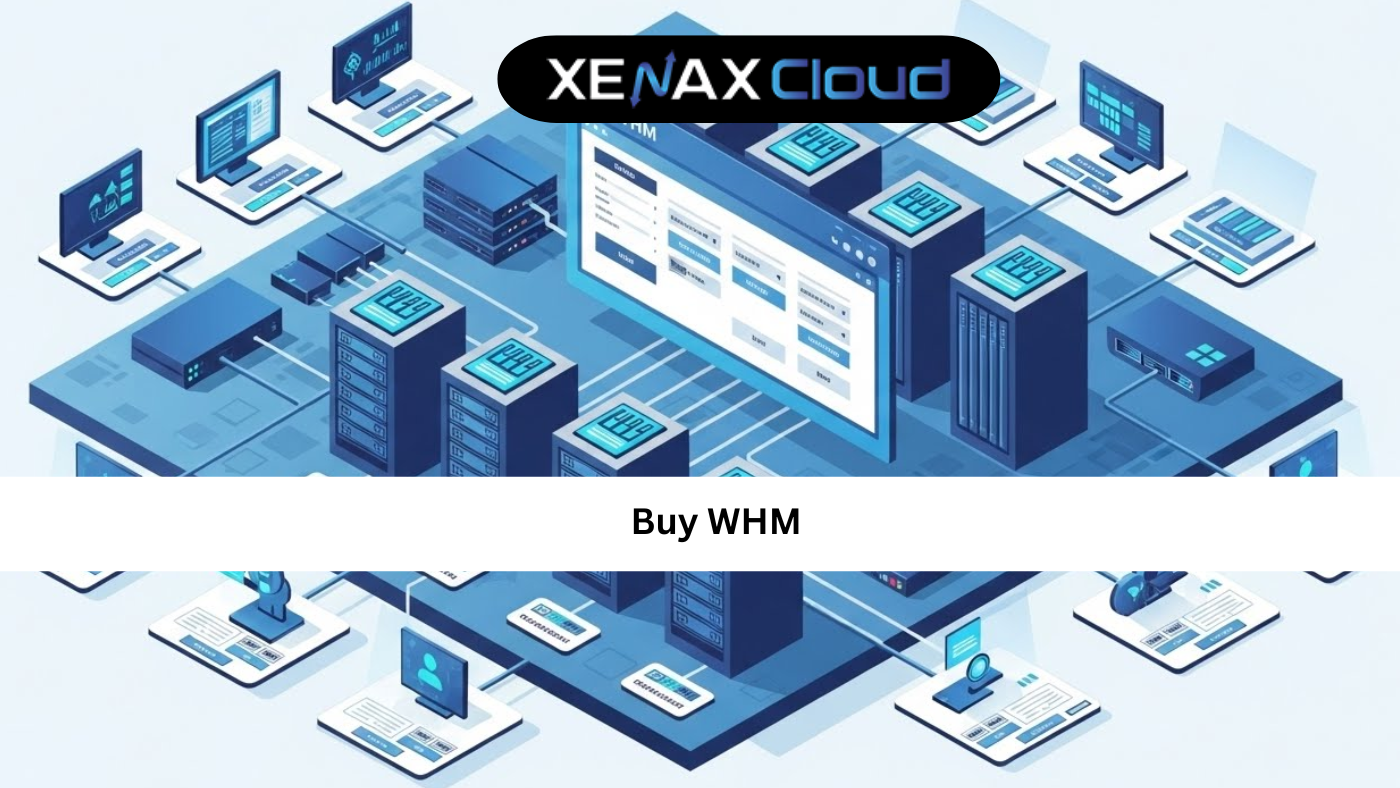In India’s rapidly growing digital landscape, businesses need to grasp fundamental technical concepts like the Difference Between Server and Database to choose the right hosting solutions for their online presence. XenaxCloud, a trusted hosting provider with an India-based data center, offers a comprehensive suite of services, including shared hosting, VPS hosting, dedicated servers, reseller hosting, Indian RDP, and domain registration. This ultimate guide explores the Difference Between Server and Database, the Difference Between Server and Web Server, and the Web Client and Web Server relationship, helping Indian businesses make informed hosting decisions with XenaxCloud’s Indian server infrastructure.
What is the Difference Between Server and Database?
Understanding the Difference Between Server and Database is foundational for businesses leveraging hosting services. Here’s a clear breakdown:
- Server: A server is a physical or virtual machine that processes requests, hosts applications, or delivers services like websites, emails, or files. It’s the hardware or virtual environment that powers your online operations. For example, XenaxCloud’s VPS hosting and dedicated servers are servers hosted on our Indian server infrastructure, ensuring low latency for Indian users.
- Database: A database is software that organizes, stores, and manages data, such as customer records, product inventories, or transaction logs. It resides on a server and is accessed by applications to retrieve or store information. Examples include MySQL or PostgreSQL, commonly used with XenaxCloud’s shared hosting or VPS hosting.
The Difference Between Server and Database lies in their roles: servers provide the computational power and environment, while databases handle structured data storage and retrieval. Together, they form the backbone of any website or application.
Difference Between Server and Web Server
The Difference Between Server and Web Server is a common point of confusion. Here’s how they differ:
- Server: A general term for any machine (physical or virtual) that performs tasks like hosting applications, managing files, or processing emails. XenaxCloud’s dedicated servers can serve multiple purposes, from hosting to storage.
- Web Server: A specialized server designed to deliver web content, such as HTML pages, images, or videos, to browsers. It uses protocols like HTTP/HTTPS. XenaxCloud’s shared hosting and VPS hosting include web servers optimized for websites, hosted on our Indian server.
The Difference Between Server and Web Server is that a web server is a type of server specifically for web content delivery, while a server can have broader applications.
Web Client and Web Server Relationship
The Web Client and Web Server relationship is central to how websites function:
- Web Client: A web client, typically a browser (e.g., Chrome, Firefox) or an application, sends requests to a web server for content like web pages or data.
- Web Server: The web server, hosted on XenaxCloud’s Indian server, processes these requests and delivers the requested content. For example, a Kolkata-based e-commerce site using XenaxCloud’s VPS hosting serves pages quickly to Indian clients.
The Web Client and Web Server interaction ensures seamless browsing, with XenaxCloud’s Indian server minimizing latency for Indian users.
Benefits of XenaxCloud’s Hosting Solutions
XenaxCloud’s hosting services, powered by our Indian server, are designed to meet diverse business needs while leveraging servers and databases effectively. Here are the key benefits:
1. High Performance with Indian Servers
Hosting on an Indian server ensures low latency and fast load times for Indian audiences, critical for user experience and SEO. Whether using shared hosting for small websites or VPS hosting for resource-intensive applications, XenaxCloud’s SSD storage and robust infrastructure deliver top performance.
2. Cost-Effective Options
For startups or small businesses, shared hosting provides an affordable entry point with web server capabilities and database support. For growing businesses, VPS hosting offers dedicated resources at a lower cost than dedicated servers.
3. Simplified Management with cPanel
XenaxCloud’s hosting includes cPanel, making it easy to manage domains, set up email accounts, install databases (e.g., MySQL), and deploy applications like WordPress. This user-friendly interface supports both servers and databases seamlessly.
4. Scalability for Growth
As your business expands, XenaxCloud’s VPS hosting and reseller hosting allow you to scale resources without downtime, ensuring your server and database infrastructure keeps pace with demand.
5. Robust Security
XenaxCloud’s hosting includes DDoS protection, free SSL certificates, and automated backups, safeguarding both your server and database. This is critical for businesses handling sensitive data, unlike less secure shared hosting environments.
6. Local Compliance and Support
Hosting on an Indian server ensures compliance with India’s data protection regulations, such as the Personal Data Protection Bill, building trust with customers. XenaxCloud’s 24/7 support team is available via chat, email, or phone to assist with server or database issues.
7. Versatile Use Cases
From hosting websites with web servers to managing databases for applications, XenaxCloud’s solutions support diverse needs. For example, Indian RDP enables remote server access for developers, while reseller hosting supports entrepreneurs.
Comparing XenaxCloud’s Hosting Options
To choose the right hosting, consider how servers and databases are used across XenaxCloud’s offerings:
- Shared Hosting: Shared hosting uses a shared web server and database, ideal for small websites but with limited resources compared to VPS hosting.
- VPS Hosting: VPS hosting provides a virtual server with dedicated resources and database support, perfect for growing businesses needing robust Web Client and Web Server performance.
- Dedicated Servers: Dedicated servers offer exclusive server access for high-traffic sites or complex databases, suitable for large enterprises.
- Reseller Hosting: Reseller hosting allows entrepreneurs to resell server and database resources under their brand.
- Indian RDP: Indian RDP provides remote server access for tasks like software testing, not for hosting websites or databases.
Why Choose XenaxCloud?
XenaxCloud stands out for Indian businesses due to:
- India-Based Data Center: Our Indian server ensures low latency and compliance.
- 24/7 Expert Support: Assistance for server and database management.
- Free Website Migration: Seamless transitions for existing sites.
- 99.5% Uptime Guarantee: Reliable Web Client and Web Server performance.
- Flexible Plans: From shared hosting to dedicated servers, we cater to all needs.
Who Should Use XenaxCloud’s Hosting?
- Startups: Affordable shared hosting for small websites with databases.
- Growing Businesses: VPS hosting for scalable server and database needs.
- Developers: Indian RDP for remote server access.
- Agencies: Reseller hosting for client website management.
- Enterprises: Dedicated servers for high-performance needs.
How to Get Started with XenaxCloud
- Visit XenaxCloud and explore hosting plans like shared hosting or VPS hosting.
- Register a domain or transfer an existing one.
- Set up your server and database using cPanel.
- Leverage our 24/7 support for a smooth launch.
- Scale with reseller hosting or dedicated servers as needed.

Frequently Asked Questions (FAQs)
Q: What is the Difference Between Server and Database?
A: The Difference Between Server and Database is that a server processes requests, while a database stores and organizes data, both critical for hosting.
Q: What is the Difference Between Server and Web Server?
A: The Difference Between Server and Web Server lies in specialization: web servers deliver web content, while servers handle various tasks.
Q: What is the Web Client and Web Server relationship?
A: Web Client and Web Server refers to browsers requesting content from servers, powered by XenaxCloud’s Indian server.
Q: Why choose XenaxCloud’s hosting for servers and databases?
A: XenaxCloud’s Indian server offers low latency, compliance, and support for robust server and database management.
Q: Is XenaxCloud’s hosting secure?
A: Yes, XenaxCloud includes DDoS protection, SSL certificates, and backups for secure server and database operations.
Q: Can I manage domains and databases with XenaxCloud?
A: Yes, cPanel simplifies domain and database management for all hosting plans.
Q: Does XenaxCloud offer support for hosting issues?
A: Yes, 24/7 support is available via chat, email, or phone for server and database queries.
Conclusion
Understanding the Difference Between Server and Database, Difference Between Server and Web Server, and Web Client and Web Server empowers Indian businesses to choose the right hosting solution. XenaxCloud’s Indian server infrastructure, combined with shared hosting, VPS hosting, reseller hosting, and Indian RDP, delivers performance, scalability, and security. Whether you’re launching a website or managing databases, XenaxCloud has you covered. Visit XenaxCloud to explore our plans and register a domain today to power your business online.





